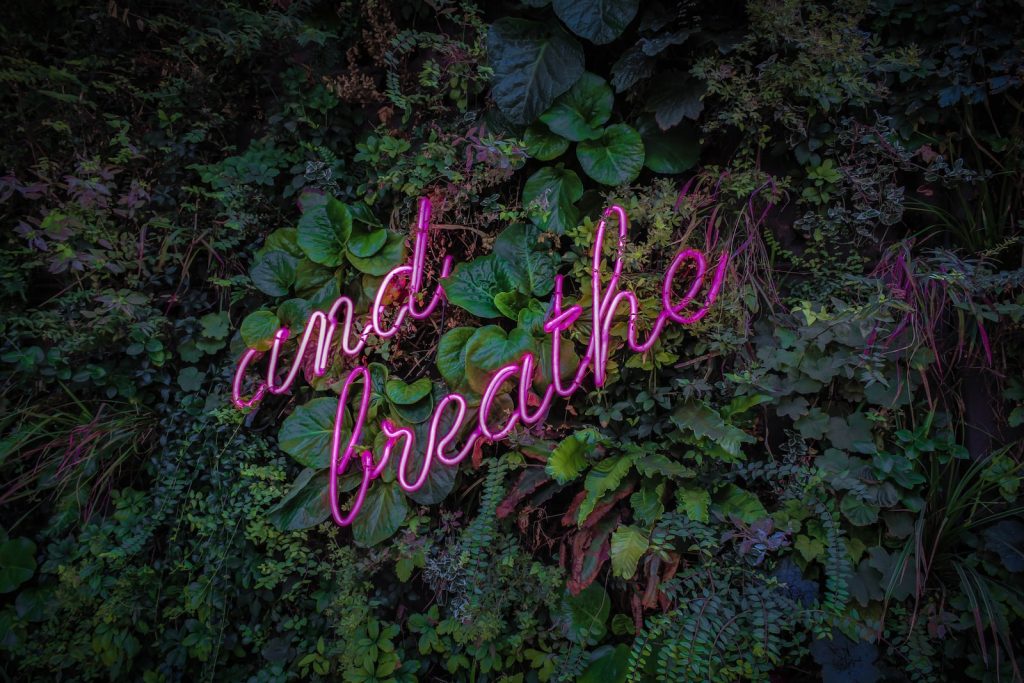Depression is a mental health condition that affects millions of people worldwide, including women. It can interfere with a person’s daily life, making it difficult to function normally. Fortunately, there are several medications available that can help alleviate depression symptoms in women.

When it comes to choosing the best medication for female depression, it is important to consider a variety of factors, including the severity of the symptoms, potential side effects, and the patient’s medical history. Some of the most commonly prescribed medications for female depression include selective serotonin reuptake inhibitors (SSRIs), serotonin-norepinephrine reuptake inhibitors (SNRIs), and tricyclic antidepressants (TCAs). Each of these medications works differently to alleviate depression symptoms and has its own set of benefits and drawbacks.
It is important to note that medication is not the only treatment option for female depression. Therapy, lifestyle changes, and alternative treatments such as meditation and acupuncture can also be effective in managing depression symptoms. It is essential for women with depression to work closely with their healthcare provider to determine the best course of treatment for their individual needs.
Understanding Female Depression

Depression is a common but serious mood disorder that can affect anyone regardless of age, gender, or social status. However, women are nearly twice as likely as men to be diagnosed with depression. Several factors may increase a woman’s risk of depression, including biological and psychosocial factors.
Symptoms and Diagnosis
Depression can occur at any age and may present differently in women than in men. Women are more likely to experience certain symptoms, such as feelings of guilt, worthlessness, and sadness. They may also experience physical symptoms such as fatigue, headaches, and digestive problems.
To diagnose depression, a healthcare provider will typically evaluate the patient’s symptoms and medical history. They may also conduct a physical exam and order blood tests to rule out other medical conditions that could be causing the symptoms.
Biological Factors
Biological factors that may contribute to depression in women include hormonal changes, genetics, and brain chemistry. Hormonal changes, such as those that occur during pregnancy, the postpartum period, and menopause, can affect mood and increase the risk of depression.
Genetics may also play a role in depression. Women with a family history of depression may be more likely to develop the condition themselves. Additionally, changes in brain chemistry, such as a decrease in serotonin levels, can contribute to depression.
Psychosocial Factors
Psychosocial factors that may contribute to depression in women include stress, trauma, and social isolation. Women are more likely than men to experience stress related to work, family responsibilities, and caregiving. Trauma, such as physical or sexual abuse, can also increase the risk of depression.
Social isolation and a lack of social support can also contribute to depression in women. Women who feel disconnected from their social networks may be more likely to experience depression. Additionally, women who experience discrimination or stigma may be at increased risk of depression.
In conclusion, depression is a complex condition that can affect women differently than men. Understanding the risk factors and symptoms of depression can help women seek the appropriate treatment and support.
Pharmacological Treatments
Pharmacological treatments are often used to treat depression in women. These medications work by altering the levels of certain neurotransmitters in the brain, which can help to improve mood and reduce symptoms of depression.
Selective Serotonin Reuptake Inhibitors (SSRIs)
SSRIs are one of the most commonly prescribed types of antidepressants. They work by increasing the levels of serotonin in the brain, which can help to improve mood and reduce symptoms of depression. Some common SSRIs include escitalopram, paroxetine, and fluoxetine.
Serotonin-Norepinephrine Reuptake Inhibitors (SNRIs)
SNRIs are another type of antidepressant that are often used to treat depression in women. They work by increasing the levels of both serotonin and norepinephrine in the brain, which can help to improve mood and reduce symptoms of depression. Some common SNRIs include venlafaxine, duloxetine, and desvenlafaxine.
Tricyclic Antidepressants
Tricyclic antidepressants are an older type of antidepressant that are still sometimes used to treat depression in women. They work by increasing the levels of serotonin and norepinephrine in the brain, which can help to improve mood and reduce symptoms of depression. Some common tricyclic antidepressants include amitriptyline, nortriptyline, and doxepin.
Monoamine Oxidase Inhibitors (MAOIs)
MAOIs are another older type of antidepressant that are still sometimes used to treat depression in women. They work by increasing the levels of serotonin, norepinephrine, and dopamine in the brain, which can help to improve mood and reduce symptoms of depression. However, MAOIs can interact with certain foods and medications, so they are generally not prescribed as a first-line treatment. Some common MAOIs include phenelzine, tranylcypromine, and isocarboxazid.
Atypical Antidepressants
Atypical antidepressants are a newer type of antidepressant that work by targeting different neurotransmitters in the brain. Some common atypical antidepressants include bupropion, mirtazapine, and trazodone. These medications may be prescribed when other types of antidepressants have not been effective or have caused side effects.
Overall, the choice of medication will depend on the individual woman’s symptoms, medical history, and other factors. It is important for women to work closely with their healthcare provider to determine the best treatment plan for their specific needs.
Psychotherapy Approaches
Psychotherapy, also known as talk therapy, is a form of treatment that involves talking with a mental health professional to help manage and overcome depression. There are several types of psychotherapy approaches that have been shown to be effective in treating depression in women.
Cognitive Behavioral Therapy (CBT)
CBT is a type of psychotherapy that focuses on changing negative thought patterns and behaviors that contribute to depression. It involves identifying and challenging negative thoughts, developing coping strategies, and learning new skills to manage stress and improve mood. CBT is a time-limited therapy that typically lasts between 12 to 20 sessions.
Interpersonal Therapy (IPT)
IPT is a type of psychotherapy that focuses on improving interpersonal relationships and resolving interpersonal problems that contribute to depression. It involves identifying and addressing interpersonal issues, improving communication skills, and developing a support network. IPT is a time-limited therapy that typically lasts between 12 to 16 sessions.
Dialectical Behavior Therapy (DBT)
DBT is a type of psychotherapy that combines cognitive-behavioral techniques with mindfulness and acceptance-based strategies. It focuses on helping individuals regulate their emotions, improve interpersonal relationships, and develop coping strategies for stress. DBT is a time-limited therapy that typically lasts between 6 to 12 months.
Psychodynamic Therapy
Psychodynamic therapy is a type of psychotherapy that focuses on exploring unconscious thoughts and unresolved conflicts that contribute to depression. It involves developing insight into how past experiences and relationships may be impacting current thoughts and behaviors. Psychodynamic therapy is a long-term therapy that may last several years.
Overall, psychotherapy approaches can be effective in treating depression in women. The choice of therapy will depend on individual preferences and the severity of symptoms. It is important to work with a mental health professional to determine the best course of treatment.
Lifestyle and Alternative Medicine
Exercise and Nutrition
Exercise and nutrition are essential components of a healthy lifestyle and can have a positive impact on depression. Exercise releases endorphins that can improve mood and reduce symptoms of depression. A balanced diet that includes whole grains, fruits, vegetables, lean protein, and healthy fats can also improve overall health and well-being.
Mindfulness and Meditation
Mindfulness and meditation can help individuals with depression manage their symptoms. Mindfulness-based cognitive therapy (MBCT) is a type of therapy that combines mindfulness meditation with cognitive therapy. It has been shown to be effective in reducing symptoms of depression. Meditation can also help individuals with depression manage stress and anxiety.
Acupuncture and Herbal Remedies
Acupuncture and herbal remedies are alternative treatments that have been used to treat depression. Acupuncture involves the insertion of thin needles into specific points on the body to stimulate energy flow. Some studies have shown that acupuncture can be effective in reducing symptoms of depression. Herbal remedies, such as St. John’s Wort and S-adenosyl-L-methionine (SAMe), have also been used to treat depression. However, it is important to note that these remedies can have side effects and can interact with other medications, so it is important to consult with a healthcare provider before using them.
In conclusion, lifestyle and alternative medicine can be effective in managing symptoms of depression in females. Incorporating exercise and nutrition, mindfulness and meditation, and acupuncture and herbal remedies into a treatment plan can improve overall well-being and reduce symptoms of depression. It is important to consult with a healthcare provider before starting any new treatment.
Support Systems and Community Resources
Support Groups
Support groups can be an effective way for women with depression to connect with others who are going through similar experiences. These groups provide a safe and supportive environment where women can share their feelings and experiences, receive emotional support, and learn coping skills from others who have been there.
One example of a support group is the Depression and Bipolar Support Alliance (DBSA). This organization offers in-person support groups as well as online support groups for women with depression. Other options include local community centers, religious organizations, and mental health clinics.
Online Resources
In addition to in-person support groups, there are also many online resources available for women with depression. These resources can provide information on depression, self-care tips, and access to online support groups.
One example of an online resource is Mental Health America. This organization offers a variety of resources for women with depression, including online support groups, educational resources, and information on treatment options.
Another option is the National Alliance on Mental Illness (NAMI). This organization offers online support groups, educational resources, and information on local resources for women with depression.
Overall, support systems and community resources can be valuable tools for women with depression. By connecting with others who understand their experiences and accessing helpful resources, women can take steps towards managing their symptoms and improving their overall well-being.
Emerging Therapies and Research
Research on emerging therapies for depression in women is ongoing, with promising new treatments being developed. While traditional antidepressants such as selective serotonin reuptake inhibitors (SSRIs) are still the most commonly prescribed medications for depression, other pharmacological options are being explored.
One promising area of research is the use of ketamine for treatment-resistant depression in women. Ketamine is a dissociative anesthetic that has been shown to have rapid and robust antidepressant effects in clinical trials. It works by blocking the N-methyl-D-aspartate (NMDA) receptor, which is involved in the regulation of mood and emotion. However, ketamine is not without its risks, and more research is needed to fully understand its safety and efficacy.
Another area of research is the use of psilocybin, the active ingredient in magic mushrooms, for the treatment of depression. Psilocybin has been shown to have rapid and long-lasting antidepressant effects in clinical trials, and is thought to work by increasing neuroplasticity and promoting the growth of new brain cells. However, like ketamine, psilocybin is a controlled substance and more research is needed to fully understand its safety and efficacy.
In addition to pharmacological treatments, there is growing interest in non-pharmacological treatments for depression in women. One such treatment is transcranial magnetic stimulation (TMS), which uses magnetic fields to stimulate nerve cells in the brain. TMS has been shown to be effective in the treatment of depression, and is a promising alternative to traditional antidepressants.
Overall, while traditional antidepressants such as SSRIs remain the first-line treatment for depression in women, emerging therapies such as ketamine, psilocybin, and TMS show promise as alternative treatments for those who do not respond to traditional therapies. However, more research is needed to fully understand the safety and efficacy of these emerging treatments.
Considerations When Choosing a Treatment
When it comes to treating depression in women, there are several factors that should be considered before choosing a medication. Here are some important considerations to keep in mind:
Severity of Depression
The severity of depression can play a role in determining the best course of treatment. For women with mild to moderate depression, psychotherapy may be used alone or in combination with antidepressant drug therapy. However, for those with severe depression, medication may be the preferred option.
Side Effects
All medications come with potential side effects, and antidepressants are no exception. Some common side effects of antidepressants include nausea, weight gain, and sexual dysfunction. It’s important to discuss potential side effects with a healthcare provider before starting a medication.
Drug Interactions
Antidepressants can interact with other medications, including over-the-counter drugs and herbal supplements. It’s important to disclose all medications and supplements to a healthcare provider before starting an antidepressant.
Pregnancy and Breastfeeding
For women who are pregnant or breastfeeding, certain antidepressants may not be safe. Healthcare providers may recommend alternative treatments or medications that are considered safe during pregnancy and breastfeeding.
Personal Health History
A woman’s personal health history can also play a role in determining the best course of treatment. For example, women with a history of heart disease may need to avoid certain antidepressants that can increase the risk of heart problems.
Overall, choosing the best medication for depression in women requires careful consideration of several factors. Healthcare providers can work with women to determine the best course of treatment based on their individual needs and health history.
Conclusion
In conclusion, there are several medications available for the treatment of depression in women. Selective serotonin reuptake inhibitors (SSRIs) are the most commonly prescribed medications for depression due to their effectiveness and relatively mild side effects. However, it is important to note that not all women will respond to SSRIs, and other medications may be necessary.
Tricyclics and other mixed or dual action inhibitors are third-line medications, and MAOIs (monoamine oxidase inhibitors) are usually medications of last resort for patients who have not responded to other medications, due to their low tolerability, dietary restrictions, and drug-drug interactions.
It is important for women to work closely with their healthcare provider to determine the best medication for their individual needs. Factors such as medical history, current medications, and potential side effects should be taken into consideration when choosing a medication for depression.
In addition to medication, other treatments such as therapy, exercise, and lifestyle changes may also be effective in treating depression in women. It is important for women to explore all treatment options and work with their healthcare provider to develop a comprehensive treatment plan.




